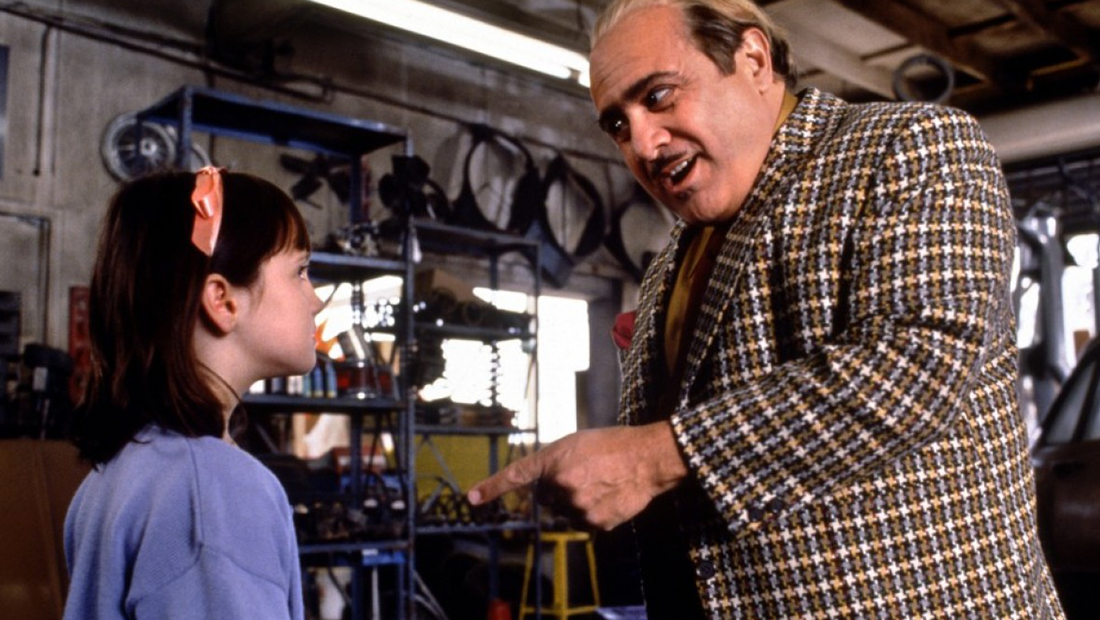
Imagine a stereotypical sales person and what is the first thing that comes to mind? Loudmouth? Pushy? Obnoxious? Perhaps Danny De Vito in Matilda or maybe Del Boy. If you’re like many, then you probably have a stereotypical view of salesmen and it’s not exactly a positive image.
The stereotype of the car salesmen or the wheeler and dealer have led people to believe that all sales people are out to rip them off by using some sorcery, black magic or mind trick to get them to spend their well-earned money.
Moreover, the rise of cold calling and corporate advertising around every corner leads us to unconsciously tune out marketing and sales messages.
Why don’t we like salespeople?
There was a time when salespeople had a the strategic advantage over customers; pre-Internet era, salespeople could say whatever they wanted without the customer having the available necessary knowledge to dispute what they were saying. This was a time of information disparity; we had no access to resources that could allow us to be selective with our purchases.
For this reason, we somewhat relied on salespeople to not only guide us to the right decision but to give us a detailed description of our available buying options, an analysis of the competition and a comparison of price. Inevitably, some salesmen used this to their advantage – sometimes over exaggerating or even deceiving their customer to buy from them.
Luckily, times have changed. Today we live in an era of information parity –everyone has full access to his or her buying options at the touch of a button via the Internet.
In the modern day consumer world, we can easily find the best deal online or research the specific benefits of a certain product or service. The era of the pushy, dishonest or deceiving salesmen being effective is a distant memory of the past.
Overcoming stereotypes
The problem is, that stereotypes are a real thing, and we have been programmed over decades to believe that salesmen are in some way trying to get one over on us. How many times have you dismissed a salesperson before they had a chance to even speak?
Moreover, we are busier than ever, so when a cold caller calls us up in the middle of the day and begins pitching their product or service before we can get a word in, we are quick to dismiss said cold caller.
The real problem is that even though sales, in general, has changed immeasurably in the last 50 years, our mindset regarding salesmen is still very much the same. As customers, we block out salespeople, and many salespeople are not able to get around this because they haven’t adapted their approach to modern times. We still receive cold calls attempting to sell us products or services we neither want nor need – wasting both the time of the customer and the salesperson.
The antidote
Most people think that the best way to sell is to perfect your pitch and attack the customer with an onslaught of benefits as to why they should buy. ABC (Always Be Closing) is the rule that many salesmen live by. This is a mistake.
Effective selling is not ‘vomiting’ information over your customer until they either cave in and buy or tell you to get lost and never call them again.
Instead, we must become masters of asking questions.
When we ask good questions and actively listen to what the customer tells us, we are able to identify their specific needs.
This is the first step in qualifying a customer – if their needs match our solution then that individual is a qualified customer that can truly benefit from what we are selling. Our job as salespeople is to guide these individuals to make the right buying decision for them.
However, if their needs do not match our solution then that individual is not a viable customer and we should end the conversation there and then. By continuing not only are we wasting the customer’s time, but we are wasting our own time, which we could invest far more lucratively.
Listen more than you speak
The only way to identify the needs of a customer is to listen. We have two ears and one mouth and we should use them in that ratio.
The benefits of listening to what our customer tells us are threefold:
- We can identify the specific areas or ‘pain points’ – in which we can provide a solution.
- We can gather intelligence regarding the customer’s needs, requirements and situation.
- We can tailor our solution to the answers that we are given.
It is far more effective to extract the relevant information from our customer and identify their individual needs. When we ask good questions and actively listen to the information that we are given, we are able to find a bespoke solution to the customer’s needs – a solution that they will see as both relevant and valuable.





